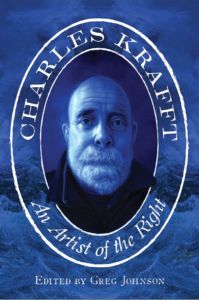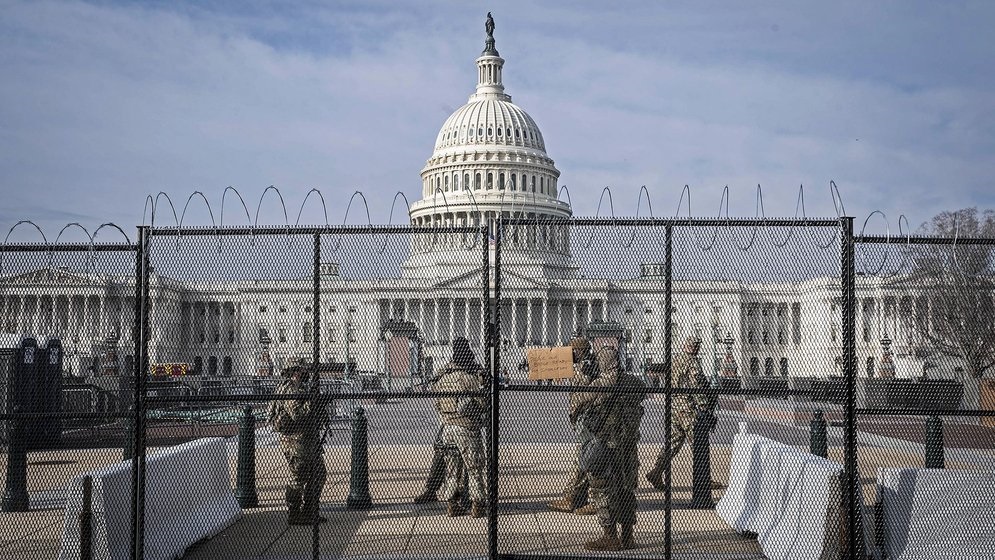Talking to the Police: A Very, Very Bad Idea

Prof. James Duane (Image source: Regent University website)
1,993 words
James Duane
You Have the Right to Remain Innocent: What Police Officers Tell Their Children about the Fifth Amendment
New York: Little A, 2016.
Most Americans know very little about police interrogations. If a police officer wants to ask you some questions, and you know that you have not committed any crime, then you should have no problem talking to the police, right? Wrong. As law professor and defense attorney James Duane shows in his 2016 book You Have the Right to Remain Innocent, agreeing to answer questions from the police is a losing proposition. Duane’s book is essentially an updated and expanded version of a lecture he gave in 2012, which as of this writing has been watched on YouTube close to 20 million times. Duane’s advice has changed somewhat in light of two alarming federal court decisions handed down in 2013 which make You Have the Right to Remain Innocent especially timely.

Duane’s stated goal in writing this book is to “bring to an end, once and for all, that obscene double standard in the American criminal justice system that allows only the citizens who are in the know to protect themselves from a legal system that is designed to prey upon ignorance and good intentions.” Law enforcement officers and prosecutors, Duane argues, are permitted to use deceptive tactics in order to obtain convictions, which is why they would never advise their own friends or family to consent to be interviewed by the police.
Duane does clarify that there are a handful of situations where one should be willing to talk to the police. For example, if you were to accidentally lock yourself out of your home and climb in through a window, and a policeman were to witness this and ask you about it, you should certainly explain to the officer that it is your own house you are entering. This applies to all “reasonably suspicious activities” for which one has a legitimate explanation. Otherwise, according to Duane, the only two questions one should answer from a police officer are versions of “What is your name?” and “What are you doing?” In the case of the latter type of question, Duane specifies that while it is fine to tell a police officer about what one is doing at the moment, “as he or she is standing right there with you,” one should not be willing to discuss what he had been doing at any point in the past.
Why is this? For one thing, you might admit to doing something that you didn’t know was against the law. As Duane explains, it would not be remotely possible for anyone to familiarize himself with every statute on the books; there are just too many of them. Furthermore, federal and state laws are often extremely vague and poorly written. How does this work in practice? Consider the case of Jacob Dix, who was one of the participants in a non-violent torchlit march opposing mass immigration the night before the Unite the Right rally in Charlottesville, Virginia in August of 2017. Several years later, Dix was charged by Albemarle County prosecutors with violating a state law that prohibited “using fire to intimidate.” Surely, no one could argue that it would have been reasonable to expect Dix, who is not even from Virginia, to be aware of this vague and obscure law, which until 2023 had never once been used to prosecute anyone. But the state still went ahead with the trial, and three jurors voted to convict Dix, resulting in a mistrial rather than an acquittal. Then there is the warning of Ohio Attorney General Dave Yost, who told university presidents that pro-Palestinian student protestors, if they wear masks or other face coverings while demonstrating, could receive felony charges under a seven-decade-old “anti-disguise” law meant to target the Ku Klux Klan. As the saying goes, “Show me the man and I’ll show you the crime.”
Of course, there are countless other examples of overly broad laws that have nothing to do with political speech.” One federal statute that Duane is particularly critical of is 16 U.S. Code § 3372. As he explains:
People have been prosecuted and convicted under this law for possessing a lobster or a fish — even though the possession of that creature did not violate any other American law — just because it was imported from another country that did forbid such possession.

You can buy Charles Krafft’s An Artist of the Right here.
In order to be absolutely certain that you have not run afoul of the law, it is apparently incumbent upon you not only to memorize all federal and state laws, but also the laws of other countries. Duane comes to the depressing but logical conclusion that “it is no longer possible to rely on your conscience or common sense as a reliable guide for whether you have committed a crime.”
That alone is sufficient reason to avoid answering questions from the police, but it gets even worse for potential defendants, because the law gives cops remarkable leeway to lie to the people they interrogate. Officers are trained to persuade suspects or potential suspects that it is in their interest to tell police officers “their side of the story.” This is almost always a lie. The law of hearsay restricts what police officers are allowed to tell a judge and jury during the course of a trial. If you tell a police officer that you could not have committed a certain crime, the law of hearsay prevents you from calling on that officer to testify to that in court. For the prosecution, however, there is an entirely different standard. The law of hearsay does not prevent officers from revealing to the court any possibly incriminating information that a defendant has so generously provided them with. Despite their assurances to the contrary, officers cannot do much to help your case, but they sure can hurt it! As Duane warns:
If you talk to the police for three hours and give them three hundred details that would all tend to support your case, and you only mention three details that might help you get convicted, the prosecutor has every right under law to ask the officers to only tell the jury about the three details that seem to implicate you in the crime. Do you think the police officers who falsely promised you that they were somehow offering to “help you” by collecting information to present to the judge will regret their lie after you have been convicted? No chance. They have done it to countless other criminal suspects, and they will do it again.
If, for some foolish reason, you still decide to answer questions from law enforcement, you had better be sure you don’t accidentally mix up any details. Depending on how long the interrogation lasts, which could be many hours, you will be given plenty of chances to make a mistake. Should you slip up, you might end up spending several years in prison for lying to the police. If an officer lies to you, it’s no big deal; if you lie to an officer, it’s a felony. Worse yet, even if you do have all your facts straight, you are taking the risk that the officer might mishear or misremember any part of what you said. Duane cautions readers that “[i]f an officer’s recollection of your conversation is not 100 percent accurate, even an innocuous or innocent remark can become devastating evidence against you.”
What, then, can you do to avoid having to answer questions from an officer? According to Duane, there are two ways, and both require one to invoke protections guaranteed in the Bill of Rights.
The Fifth Amendment to the United States Constitution includes a provision that protects any American from being “compelled in any criminal case to be a witness against himself.” This is where the “right to remain silent” originates. The right to remain silent is among the “Miranda rights” that an officer is required to read to you if you are arrested or placed in police custody. It is important to note that agreeing to voluntarily submit to police questioning is not the same thing as being placed under arrest (though it could lead to that, depending on what you choose to tell the police).
Historically, the Supreme Court has been adamant that prosecutors cannot cite a defendant’s invocation of their Fifth Amendment privilege as evidence of guilt. Its 2013 ruling in Salinas v. Texas complicates matters somewhat, however. In that case, a teenage suspect who had not yet been arrested (and had not been read his Miranda Rights) chose to stand silently rather than answer an officer’s questions. The court ruled that Salinas’ silence could indeed be submitted by the prosecution as evidence against him because he did not directly tell the officer he was exercising his right to remain silent. Duane emphasizes that if you do “plead the Fifth,” you must do so explicitly.
This seems easy enough, but Duane then goes on to tell the story of Gillman Long, a man who did invoke his rights explicitly, but did so in the wrong way. While he was being questioned by an FBI agent about an accusation of sexual misconduct, Long, who was not yet under arrest, is then said to have told the agent that “I do not want to incriminate myself, I would like to stop talking.” The term “self-incrimination” is common legal parlance for revealing information that could potentially hurt one’s case, which is one of the things that the Fifth Amendment was designed to guard against. Indeed, the Fifth Amendment is often referred to as a protection against “self-incrimination.” In this context, it is clear that Long was simply trying to invoke his constitutional rights through the use of a term that is synonymous with Fifth Amendment protections. Yet, the prosecutor arguing the case against Long seized on his use of the word “incrimination” to imply that Long had something to hide. Long was found guilty and sentenced to life in prison, and in 2013, his appeal for a new trial was rejected by a federal court. In light of this, Duane concludes that:
The Department of Justice has now shown official notice that it believes courts should allow a prosecutor to argue under any circumstances that your willingness to assert the Fifth Amendment privilege can and should be used against you as evidence of guilt.
In his original 2012 lecture, Duane recommended that those who are being questioned by police should exercise their right to silence. Due to the implications of the two aforementioned cases, he now cautions against taking the Fifth, as “there is too great a danger that the police and the prosecutor might later persuade the judge to use that statement against you as evidence of your guilt.” Instead, he suggests invoking the Sixth Amendment, which guarantees one’s right to “the assistance of Counsel for his defence.” To do this effectively, one must be firm and direct, leaving no room for interpretation on the part of the officers who are trying to get them to talk. Thus, the last and most important piece of advice Duane offers to his readers is this:
You need to say, with no adverbs, in only four words “I want a lawyer.” And then you need to say it again, and again, until the police finally give up and realize they are dealing with someone who knows how our legal system really works.
All citizens ought to be aware of the risks involved in talking to the police, but this is especially true for political dissidents. There is no shortage of police officers, federal agents, and prosecutors who would jump at the chance to go after a White Nationalist. We need our comrades to be free to contribute to our cause, not sitting behind bars because they naïvely assumed that the police would be honest with them.
Be safe, be smart, and don’t talk to the police.


